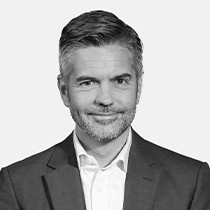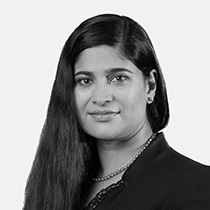Despite widespread pessimism and developed market central banks’ stubborn persistence to quell inflation with restrictive interest rates, global growth continues to be surprisingly resilient. The hiking cycle in interest rates has left them at levels last seen during the Global Financial Crisis. The widely anticipated US recession has not occurred, although many investors fear it may still come. In our view, growth will slow down as the interest rate hikes of the past year take effect, but a full-blown recession may be avoided.
In emerging markets, China’s post-pandemic economic recovery has been slower than anticipated and the People’s Bank of China has had to step in with incremental support. Financial markets have nimbly dealt with concerns around US banking frailties, worries around commercial real estate, and apprehensions about US debt ceiling negotiations. The result has been that risk assets have delivered strong returns in the first half of this year.
In US dollars year to date, the MSCI All Country World Index came in with a positive 14%, the MSCI Emerging Markets Index was up 5% and the World Government Bond Index was up 1.4%. In South Africa (SA), rand investors fared better, assisted by an almost 10% weakening of the rand against the US dollar. This reflected the very negative investor sentiment against SA, particularly in the second quarter. This was caused by higher levels of loadshedding and the potential for secondary sanctions to be imposed on the country following accusations by the US that the local government had loaded weapons onto a US-sanctioned vessel.
Domestically, currency weakness also benefited the performance of rand hedge counters on the JSE, with the result that equity markets outperformed bond and property markets. In rands year to date, the FTSE/JSE Capped Shareholder Weighted Index was up 4%, with the FTSE/JSE All Bond Index up almost 2% and listed property (FTSE/JSE Africa All Property Index) coming in with a disappointing return of -4%.
Against this backdrop, the Fund has delivered a very pleasing performance, with a positive top-quartile return of 15.0% for the year (12 months), which places it ahead of its inflation + 3% target over one and three years and since inception. The Fund has delivered healthy real returns over five and ten years.
The Fund’s allocation to global assets was the largest contributor to performance for the six months to June. Our global equity allocation and bond selection delivered strong returns, partially offset by the cost of our put protection against global equities. We continue to think that there are select attractive investment opportunities in global equity and bond markets, hence we have kept a healthy offshore exposure at 33%. We do, however recognise that, overall, global equity indices have performed very strongly and that the air for further gains from this point starts to get thinner. We have thus increased our put protection against global equities as the cost of the protection has also become cheaper. In the global bond space, we continue to pick up our allocation to specific global corporate bonds where yields are appealing. We have a well-diversified basket of holdings, limiting the risk of single-name exposure.
Domestic assets have contributed positively to Fund performance over the past six months, with the exposure taken primarily through equities and bonds. Good equity and bond selection delivered returns ahead of their respective indices. Within domestic equities, Richemont, Naspers, FirstRand, and Nedbank were the largest contributors to returns, while holdings in Anglo American, Impala Platinum, Exxaro Resources and Dis-Chem were detractors.
Richemont stands out as a top equity contributor to the Fund, not only over one year, but also over three and five years. Its ownership of the heritage jewellery brands (Cartier and Van Cleef & Arpels), as well as prestigious watch brands, gives the business a desirable product with strong pricing power that is difficult to disrupt. With these well-managed brands, the business is set up to compound hard currency revenue and earnings well ahead of inflation over the long term. This growth outlook, combined with a fortress balance sheet, means that Richemont continues to have a meaningful exposure in the Fund.
In domestic fixed income, we continue to see attractive real yields on offer from SA government bonds. However, we are more concerned about the increasing structural challenges faced by the domestic economy from our deteriorating infrastructure. We continue to manage the risk in our government fixed income allocation by curtailing the duration of the Fund’s bond carve-out.
We have reduced the Fund’s risk asset exposure since the beginning of the year in favour of interesting opportunities in the global income space and higher cash balances. Higher domestic interest rates have meant that near-dated cash instruments generate an appealing income yield. These instruments are attractive to us as they allow the Fund to increase its liquid resources and manage downside risk.
OUTLOOK
Looking forward, we expect global investors to continue to focus on inflation, interest rates, and growth as they have in the first half of the year. Headline inflation has rolled over, but core inflation continues to be sticky in developed markets. As a result, interest rates are likely to remain at elevated levels for the rest of the year and growth trends will become more muted. Geopolitical risks will remain elevated as the war in Ukraine continues and tensions between the US and China persist.
Domestically, the rapid deterioration in rail and power infrastructure present real headwinds to our industrial, retail, and export businesses. Lack of adequate fixed investment spend and proper policy reform, means that these problems will be difficult to address quickly. Low economic growth will impact the earnings power of domestic-facing businesses, but also has implications for Government’s ability to manage its debt burden.
The Fund will navigate the rest of the year by continuing to stick to its process of making asset allocation and instrument selection decisions based on valuations. Notwithstanding the Fund’s robust performance thus far this year, the portfolio remains resilient and is well set up to deliver on its targeted returns for clients.
Disclaimer
SA retail readers
 South Africa - Personal
South Africa - Personal




